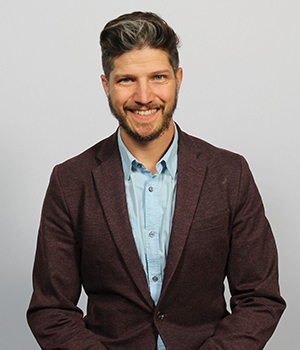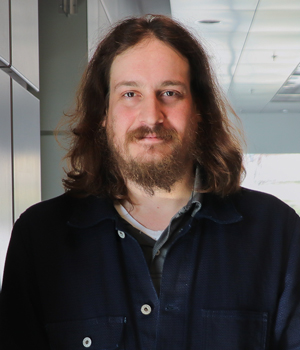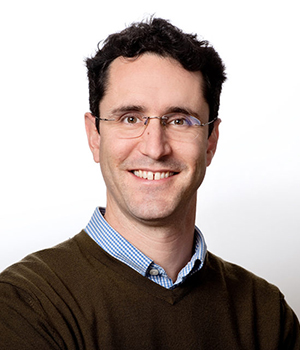Geological reservoirs can be used for a variety of purposes, including the permanent storage of carbon to reduce greenhouse gases in the atmosphere, the temporary storage of energy such as compressed air, natural gas or hydrogen, and the extraction of geothermal heat. These technologies are not widely available in Quebec but are found elsewhere in the world. Quebec could draw on them to develop new economic sectors and achieve its environmental targets. This session presents each of the five possibilities listed, and reviews commercial projects as well as projects in development around the world.
Geological Reservoirs: New Economic Sectors to Develop as Part of the Energy Transition and to Meet Carbon Neutrality Objectives?
Thursday, November 23, 2023
Room 402 - MEIE


Session organizer
Jacinthe Légaré-Laganière
MEIE
Opening of the Assembly
Session agenda
Introduction
Objectives
Canada is aiming for carbon neutrality by 2035 for electricity and by 2050 for the economy. Renewable energies, particularly wind power, will play a key role, but their intermittent nature poses reliability challenges. Lithium-ion batteries, with a storage capacity of 4 to 8 hours, effectively mitigate daily fluctuations. However, compressed-air energy storage stands out by offering large-scale storage capacity, ranging from 8 hours to several days.
In 1978, Germany commissioned a 290 MW system, marking the maturity of this technology, but recent advances have increased the cycle's efficiency from 40% to 60-75%. This presentation will highlight recent technological advances, selected geological reservoirs and their central role in the energy transition.
9:30 a.m.
Underground Storage of Natural Gas in Geological Reservoirs: Today's Context and Tomorrow's Prospects

Intragaz
Founded in 1991, Intragaz has developed and operates the only two depleted natural gas storage sites in Quebec. An invaluable tool contributing to the management of energy peaks and the immense challenge of seasonal storage. Storage also makes it possible to reduce costs by supplying gas when demand and prices are low, and by withdrawing it when demand and prices are higher. In the current context, it is a key element in winter peak load management. Looking forward, its infrastructures will adapt to the introduction of new gases, including the addition of hydrogen and RNG.
9:55 a.m.
Hydrogen Storage in Geological Reservoirs

With the advent of hydrogen technologies, reservoirs capable of storing hydrogen safely and economically will need to be developed. A recent avenue of research for hydrogen storage is in various geological reservoirs. The presentation will provide an introduction to the technology, an assessment of storage potential in Canada, and a description of Canadian Nuclear Laboratories' expertise and activities in underground hydrogen storage.
10:15 a.m.
Break
10:30 a.m.
Potential of Reusing Former Oil Wells for Geothermal Purposes — Videoconference

INRS-ETE
Authors: Jasmin Raymond, Félix-Antoine Comeau, Violaine Gascuel (INRS-ETE) and Stephan Séjourné ENKI GeoSolutions)
Some sixty open oil wells are still present throughout Quebec. These wells range in depth from 672 m to 3,450 m and are mainly located in the St. Lawrence Lowlands and in Gaspésie, sometimes close to buildings. Some of these wells could be reused with geothermal heat pumps to heat adjacent buildings. In this presentation, we will discuss what geothermal resources are, what they can be used for, and how former oil wells are a key element that could lead to a first use of intermediate-depth geothermal resources in Quebec (1-3 km).
An increase in the number of CO2 capture projects is expected in the short/medium term in order to meet GHG emission reduction targets. It is imperative to develop storage capacity, as it is clear that the utilization sector will not be sufficient for the anticipated volume of capture. Given Canada's size and the transport costs, it is essential to develop local storage capacity. What steps should be taken to achieve this in Quebec? This presentation will offer some possible avenues to explore.
11:30 a.m.
Geological Reservoirs on the Surface: Challenges and Opportunities of Ex-Situ Mineral Carbonation in Quebec

Exterra Solutions Carbone
Mineral carbonation, the natural process of transforming CO2 into carbonate minerals, plays a crucial role in the long-term regulation of atmospheric carbon. Recognized as an effective method of combating climate change, this reaction can be optimized using metallurgical processes. This approach makes it possible to exploit the storage potential of minerals to support decarbonization efforts worldwide. Carbonation can be carried out in situ, in deep geological layers, or ex-situ, by processing minerals on the surface. This presentation will focus on the challenges and opportunities of ex-situ mineral carbonation, notably using mine tailings such as those from the production of asbestos, nickel or sinter steel.
12:00 a.m.

